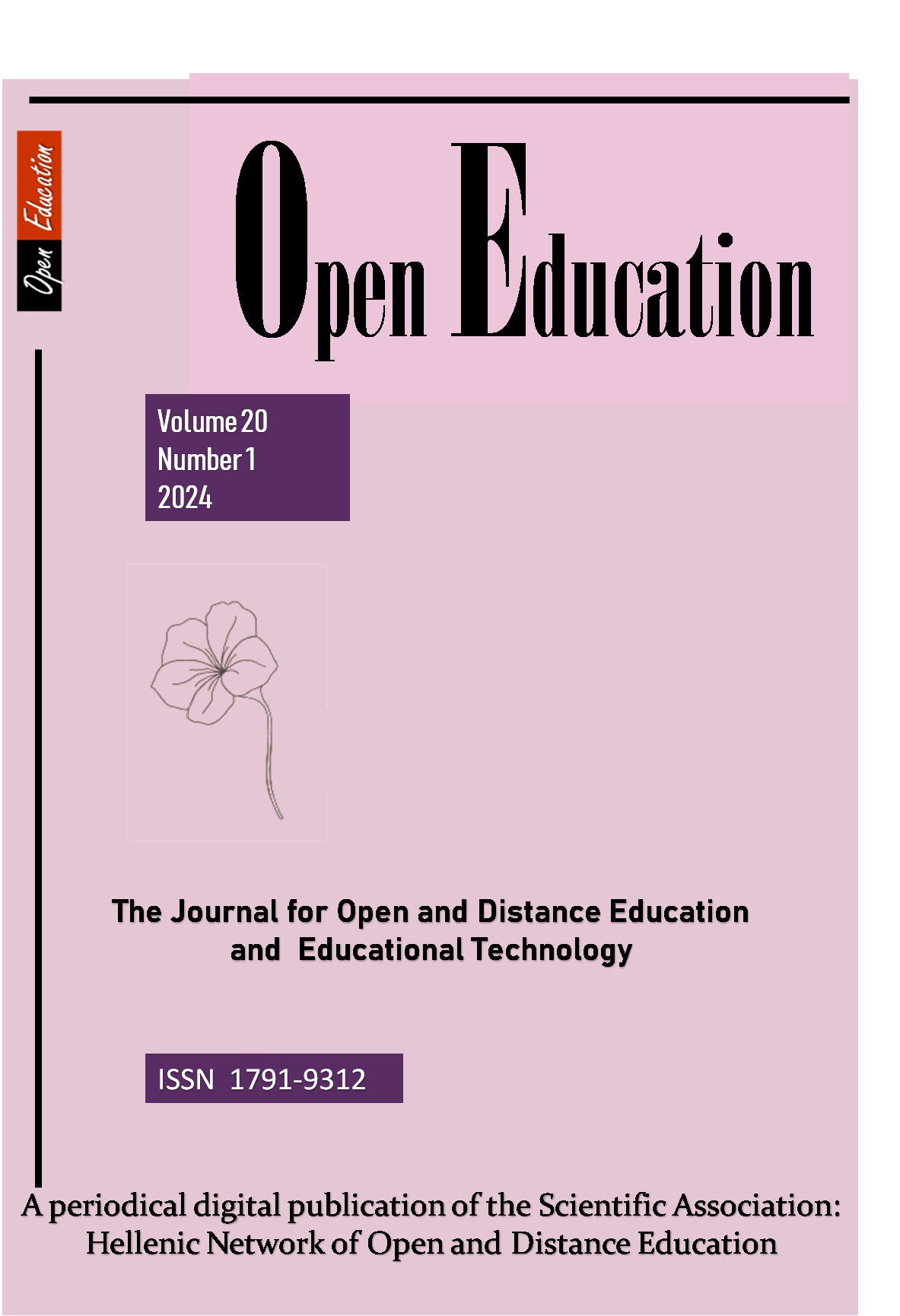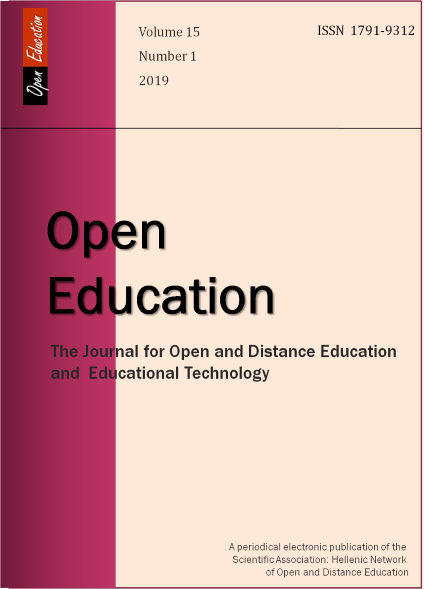Ελληνικά

Abstract
The educational utilization of digital technologies is a basic orientation of today's school in primary education. A collaborative learning environment is formed through the use of ICT, where the active participation of students increases learning motivation, making students creators and contributing to the co-construction of knowledge. In e-learning, teaching is implemented entirely remotely or the blended learning model is applied. Considering the benefits of blended learning, blended learning is an area of research in Primary Education as it ensures equal access to education.
The article presents the implementation of courses in the Moodle digital environment concerning Primary education. The main question is how the Moodle digital environment was used in Primary Education, what resources were used and what other applications were integrated into the environment, in order to achieve the expected learning outcomes. Also, what resources mobilized student participation. The implementation took place in sixth grade students of an urban Greek primary school. The activities were developed in a digital learning environment with blended learning, as action research. The educational material was uploaded weekly gradually and remained available throughout the school year. The subjects included in the blended learning were Language, History, Geography, Physics.
In the Moodle environment, links to digital tools and resources were integrated or inserted during the implementation of blended learning. Access to the learning material was possible from the school's computer lab, the classroom and from home. Throughout the implementation, communication and collaboration between students took place in the Moodle environment.
During the action in the digital environment of Moodle were implemented:
- Formation of the lessons of the cognitive subjects according to the curriculum of Primary Education.
- Communication between teacher and students and cooperation between students.
- Self-assessment of students using the automated grades of the digital environment and participation in digital resources in the classroom.
- Observation by the teacher.
- Qualitative and quantitative research.
The cultivation and strengthening of digital skills was attempted from the 1st to the 2nd action cycle, as well as 21st century learning skill cooperation, communication, innovation, creativity, in a digital environment and through life, social life skills, mind skills with thinking routines (observe, act, evaluate, reflect). In the 2nd cycle, the utilization of the same resources and the implementation of corresponding activities were attempted, with improvements, taking into account the comments of the students of the 1st cycle regarding the digital environment and the lack of knowledge in e-learning of the 2nd group of students. The 2nd cycle of action research aimed at the optimal use of the digital environment according to the reference age group, in order to be a continuation of the previous one.
The evaluation of the action was done with qualitative and quantitative research, investigation of the students' opinions and attitudes towards e-learning and with structured observation by the teacher. The structured environment of Moodle facilitated the navigation of the students in the environment. The approach was multi-sensory and co-construction was supported through student interaction. From the teacher's observation, the Moodle Reports, the qualitative and quantitative research and the investigation of the students' knowledge and opinions, it emerged that it is possible to utilize Moodle with blended learning in Primary Education. The Moodle data collection showed that the instructional design in this environment motivated the students through Quizzes, Games and Wikis. The creation of a pleasant climate of communication and cooperation was observed by the teacher and recorded by the students and students cultivated 21st century learning skills. The students of the 2nd cycle of action research were not familiar with ICT and blended learning. They cultivated their digital skills by engaging in digital tools and Moodle. It was observed by the teacher that they cultivated critical thinking, improved students’ writing skills, and it was recorded that they acquired a positive attitude towards e-learning and Moodle.
The digital learning environment favored the co-construction of content in collaborative digital learning tools. Participation helped to enhance creative writing, critical thinking, and self-improvement. Students cultivated their critical thinking and metacognitive skills while processing information, moving from researcher to creator. Furthermore, interacting in an unfamiliar digital environment contributed to individual improvement and digital literacy. Students cultivated and acquired digital literacy skills as they used Moodle, a platform which primarily has used for adult education, learned about its potential as an educational tool, used online digital communication and training applications for collaborative writing and learning.
However, additional use of Moodle in Primary Education is deemed necessary both in the same age students group and in a younger one, although it was used comparatively in students of the same age group with and without e-learning experience. In addition, to utilize the same Moodle resources, so that comparative results can be obtained for the resources that mobilize the students. Internet connection issues should be resolved and improved. Also the platform's capabilities for submitting large files, as young students do not have the knowledge to reduce file sizes, which sometimes led to students not being able to submit their assignments.
Article Details
- How to Cite
-
Goltsiou, A., & Σοφιανοπούλου Χ. (2024). Ελληνικά. Open Education: The Journal for Open and Distance Education and Educational Technology, 20(1), 105–130. https://doi.org/10.12681/jode.34748
- Section
- Articles

This work is licensed under a Creative Commons Attribution-NonCommercial-ShareAlike 4.0 International License.
Copyright Notice
Authors who publish with this journal agree to the following terms:
Authors retain copyright and grant the journal right of first publication with the work simultaneously licensed under a Creative Commons Attribution Non-Commercial License that allows others to share the work with an acknowledgement of the work's authorship and initial publication in this journal.
Authors are able to enter into separate, additional contractual arrangements for the non-exclusive distribution of the journal's published version of the work (e.g. post it to an institutional repository or publish it in a book), with an acknowledgement of its initial publication in this journal.
Authors are permitted and encouraged to post their work online (preferably in institutional repositories or on their website) prior to and during the submission process, as it can lead to productive exchanges, as well as earlier and greater citation of published work.



